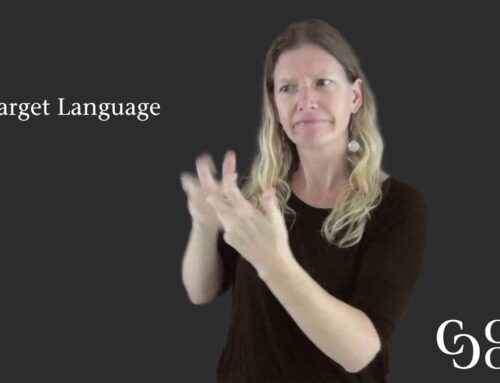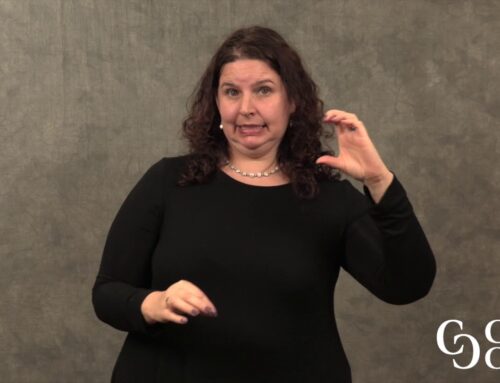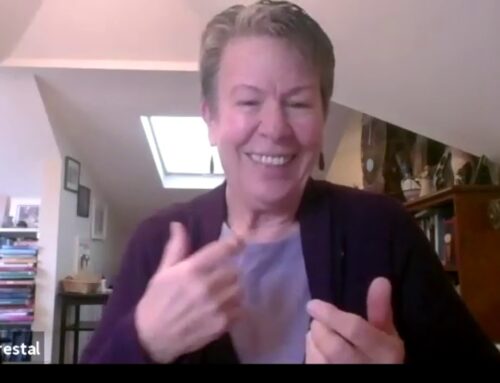 Scenario Synopsis
Scenario Synopsis
This series of videos is of a meeting between a VR counselor and program manager in creating an access plan for a client.
Credits for this Video
This video was originally created by the National Consortium of Interpreter Education Centers as part of the Interpreting in Vocational Rehabilitation Settings series. For more information, visit: http://www.interpretereducation.org/tim/video-series/interpreting-in-vocational-rehabilitation-settings/
Transcript for Meeting without Interpretation
All comments come from program manager. Timestamps are included to allow you to navigate the text.
Transcript for Meeting without Interpretation
Timestamps are included to allow you to navigate the text.
The video uses split screen to show multiple people involved.
On the right side of the video screen, the VR counselor, Julie, has long auburn hair, white skin, is wearing glasses, and is wearing a blue blouse. On the left is the interpreter, who is a white woman with dark brown long hair held back with a black headband, wearing a black v-neck sweater. The program manager a white man with grey, short hair and is seated to her left wearing a light blue button down table. They are all seated around a table.




